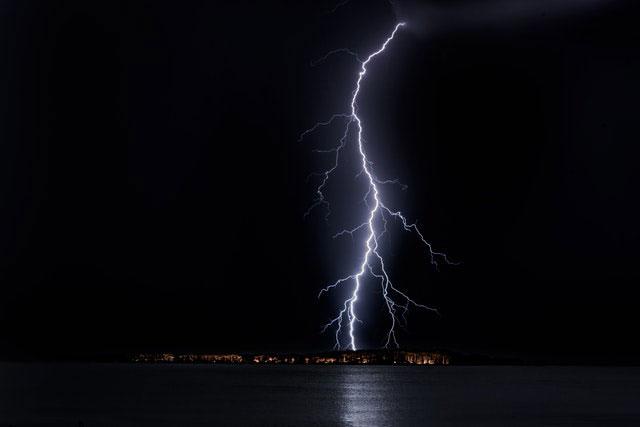ALBANY – Assemblyman Colin Schmitt (R, New Windsor), who himself is a lightning strike survivor, unanimously passed an Assembly legislative resolution memorializing the Governor to proclaim June 20-26, 2021, as Lightning Safety Awareness Week in the State of New York.
Lightning kills an average of 47 people in the United States each year and hundreds more are severely injured. National Lightning Safety Awareness Week was established in 2001 to call attention to this underrated killer.
Since its inception, lightning fatalities in the country have dropped tremendously and this reduction is largely due to greater awareness of the lightning danger, and people seeking safety when thunderstorms threaten. It is imperative that there be greater public awareness of this serious issue, Schmitt said.
Some general safety tips during a thunderstorm provided by the National Weather Service include:
- Find indoor shelter. Get inside the nearest available hard-topped vehicle or building, keeping all windows shut, and stay there for at least 30 minutes after the storm passes before returning outside. Avoid picnic tents, pavilions or other open, outdoor structures.
- Get to low ground. Avoid hilltops and open areas. Lightning seeks the highest ground, so if indoor shelter is not available, crouching down in the nearest, lowest, unexposed point is a better bet.
- Distance yourself from tall objects. Never stand near tall structures — particularly metal ones — which can act as lightning rods. Avoid lone trees, flagpoles, telephone poles, fences and antennas.
- Don’t use corded phones: Using a corded phone during a thunderstorm is one of the leading causes of indoor lightning injuries. However, it IS safe to use cordless or cell phones as long as they are not being charged.
- Stay away from windows and doors: Sitting on an open porch to watch a thunderstorm is also dangerous. It is best to be in an interior room during a thunderstorm.
- Don’t touch electrical equipment or cords: Any device that uses electricity (e.g. computers, televisions, household appliances, etc.) is susceptible to a lightning strike. Electrical surges caused by lightning can damage electronics (even at some distance from the actual strike), and a typical surge protector will do little to protect the device (or the person using it) if lightning should strike. So consider unplugging certain appliances or electronics, but for your own safety do this BEFORE the storm arrives.
- Avoid plumbing: Metal plumbing and the water inside are both very good conductors of electricity. Therefore, do not wash your hands or dishes, take a shower or bath, do laundry, etc. during a thunderstorm.
- Refrain from touching concrete surfaces: Lightning can travel through the metal wires or bars in concrete walls and flooring, such as in the basement or garage.
- If inside a vehicle: Roll the windows up and avoid contact with any conducting paths leading to the outside of the vehicle (e.g. metal surfaces, ignition, portable electronic devices plugged in for charging, etc.).
“A saying I now live by is, ‘when thunder roars, go indoors.’ Safety is paramount to me and I am happy to have had the opportunity to get my resolution passed, aiding in public awareness and messaging to protect our community. As a lightning strike survivor, I have the ability to relate and bring attention to a potentially deadly issue within our region,” Skoufis said.








